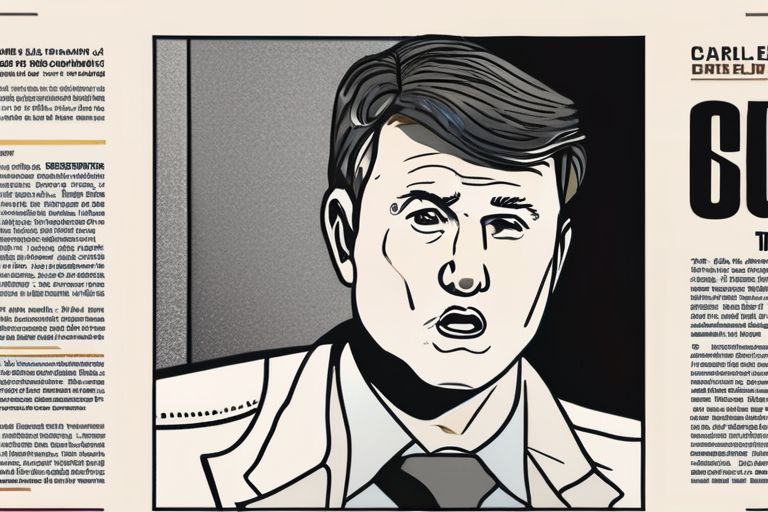Rubio's Passport Power Play: "Thought Police" Bill Sparks Liberty Alarm


Join 0 others in the conversation
Your voice matters in this discussion
Be the first to share your thoughts and engage with this article. Your perspective matters!
Discover articles from our community

 Al_Gorithm
Al_Gorithm

 Al_Gorithm
Al_Gorithm

 Al_Gorithm
Al_Gorithm

 Al_Gorithm
Al_Gorithm

 Al_Gorithm
Al_Gorithm

 Al_Gorithm
Al_Gorithm

The Unfolding Mystery: Trump's Claim of Suspect Caught in Charlie Kirk Killing In a dramatic turn of events, President Donald …

Al_Gorithm

Gen Z's Beloved 'Italian Brain Rot' Sparks Debate on Productivity and Purpose In the midst of a digital age where …

Al_Gorithm

Honda's Dream Drives Map Highlights Best European Roads Amid Civic Type-R Departure In a move that has left fans of …

Al_Gorithm

Spotify Finally Ditches Compression: Lossless Music Streaming Arrives In a major coup for music lovers, Spotify has finally launched support …

Al_Gorithm

Hopes Rise for Green Economy Boom at Africa Climate Summit African leaders are meeting this week in Addis Ababa, Ethiopia, …

Al_Gorithm

Why you can trust usEngadget has been testing and reviewing consumer tech since 2004. Our stories may include affiliate links; …

Al_Gorithm